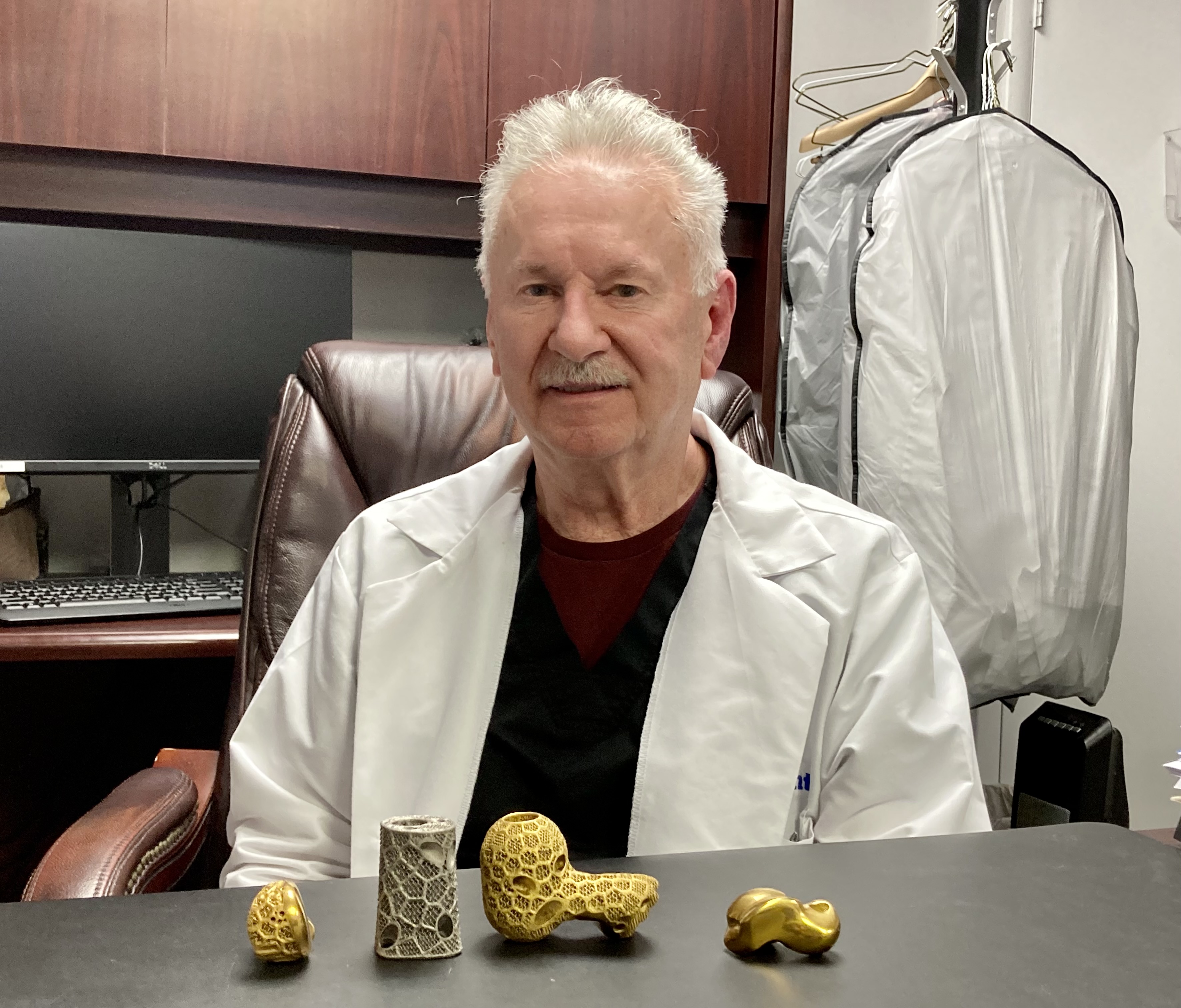When
Dr. Lawrence Fallat
goes on mission trips, he always comes back with memories. But after one
mission trip to Nigeria, he came back with more: A 10-year-old orphan, saving
him from what Dr. Fallat described as a death sentence.
“I couldn't leave him there,” Dr. Fallat said. “He had no parents
... What I did is what anybody else would have done.”
Dr. Fallat brought the child back to the U.S. to undergo clubfoot
surgery. He was adopted by his foster parents and now, “he's doing great. His
life has changed around completely,” Dr. Fallat said.

The doctor of podiatric medicine has been practicing for more than
40 years. He has affiliations at Corewell Health Beaumont Hospitals in Taylor
and Dearborn and is the director of Wayne’s Podiatric Surgery Residency.
Dr. Fallat grew up in Taylor where his dad worked at a steel mill.
No one in his family had gone to college, let alone medical school. Everyone
told him his dream to become a doctor was unattainable. Even his high school
advisor told him he was wasting his time, and he should work at a factory.
He persevered, however, and earned his undergraduate degree at
Eastern Michigan University, went to Illinois College of Podiatric Medicine and
completed his residency in Colorado. After his residency, he completed a trauma
fellowship in Germany where he had previously served in the United States Army.
And this same man, who was told to give up on medical school
dreams, has published just over 100 papers in peer-reviewed
journals and now teaches future
doctors at Wayne.
He’s
also impacted hundreds of lives in Guatemala, Dominican Republic, Honduras and
Nigeria on mission trips. When he was asked to go on his first mission trip to
help kids with physical disabilities, he thought it would be interesting, but
he didn’t appreciate the gravity of being able to change their lives.
He
said he can help these kids walk again, and to not use this ability would be a
travesty.
You have to help these children,” Dr. Fallat said.
He said to have a physical disability in a developing nation is “a
death sentence,” and it’s almost impossible to survive in a place where
living can already be challenging.
So, he goes on these mission trips, which he finances himself, and
spends 12-14 hours each day performing life-changing surgeries. He estimates
he’s helped 300 children have better lives, but that’s not enough. He feels he
needs to go back and do more.
“How do you turn your back on that? How do you keep from going
back?” Dr. Fallat asked. “It's a life-changing experience.”